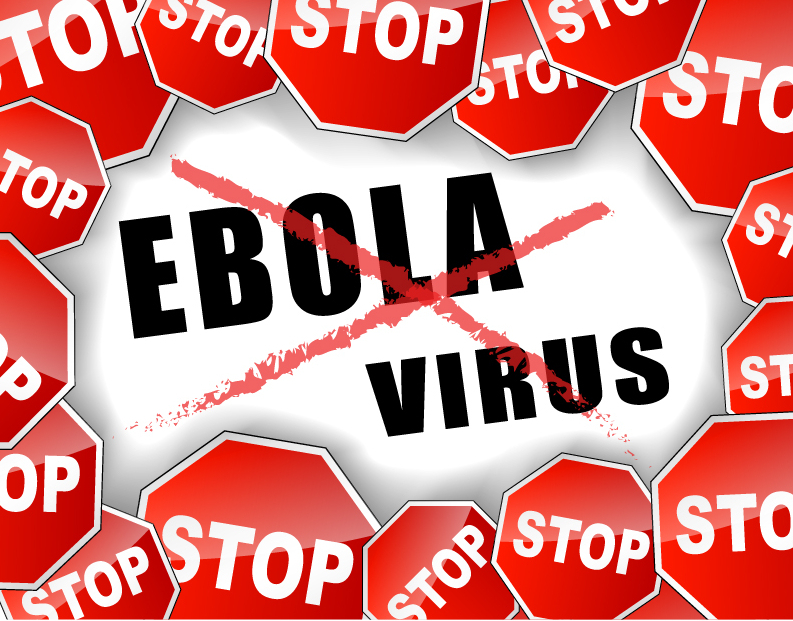WASHINGTON – The U.S. government is closing a gap in Ebola screening at airports while states from New York to Texas to California work to get hospitals and nurses ready in case another patient turns up somewhere in the U.S. with the deadly disease.
Under the rule going into effect Wednesday, air travellers from the West African nations of Liberia, Sierra Leone and Guinea must enter the United States through one of five airports doing special screenings and fever checks for Ebola. A handful of people had been arriving at other airports and missing the checks.
A total of 562 air travellers have been checked in the screenings that started Oct. 11 at New York’s Kennedy airport and expanded to four others last week, Homeland Security officials said. Four were taken from Washington’s Dulles airport to a local hospital. None had Ebola.
The other airports are Newark’s Liberty, Chicago’s O’Hare and Atlanta’s Hartsfield-Jackson.
The tightened rules for West African travellers come as Rwanda – an Ebola-free country in East Africa – said it would begin checking visiting Americans for the disease because of the three cases that occurred in the U.S.
The Obama administration has been under increasing pressure from lawmakers and the public to ban travel from the three hardest-hit West African nations where more than 4,500 people have died of Ebola. President Barack Obama says such a ban could make the situation in those countries worse and make it harder for foreign doctors and aid workers to bring the outbreak under control.
There are no direct flights from the three nations into the U.S.; about 150 fliers per day arrive by various multi-leg routes. About 6 per cent of them were coming through airports that don’t have the new Ebola screening, federal officials said.
Homeland Security Secretary Jeh Johnson said with the change, “we currently have in place measures to identify and screen anyone at all land, sea and air ports of entry into the United States who we have reason to believe has been present in Liberia, Sierra Leone or Guinea in the preceding 21 days.”
Homeland Security officials at the airports use no-touch thermometers to check for fever, which can be a symptom of Ebola infection. People who have been infected with the virus may not develop a fever and illness for up to 21 days.
In Texas, Gov. Rick Perry designated two special Ebola treatment units to take any future patients in his state, site of the only three cases diagnosed in the United States during this outbreak. They were a man from Liberia infected before he came to the U.S. and two of the nurses who treated him at Texas Health Presbyterian Hospital in Dallas. That hospital wasn’t chosen as a future Ebola centre to grant staff members some relief, Perry said. Dozens of the hospital’s employees are still being monitored in case they, too, were infected.
Judge Clay Jenkins, Dallas County’s top administrator, said staff members at the Dallas hospital are tired, with “a wealth of emotions going on.”
“It would be inhumane and not in their best interest, nor in anyone else’s best interest, for them to be directed or forced into continuing,” Jenkins said.
The U.S. Centers for Disease Control and Prevention issued new guidelines Monday to better protect health care workers. CDC officials demonstrated the recommended techniques Tuesday at a training session for several thousand health care workers in New York City.
New York Gov. Andrew Cuomo urged the health care workers there to also use their training to educate their families and communities about Ebola.
“Keep the anxiety down,” he said. “Keep the fear down.”
The new guidelines call for full-body garb and hoods to protect health care workers’ necks; rigorous rules for removal of equipment and disinfection of hands; and a “site manager” to supervise the putting on and taking off of equipment. The CDC cannot require hospitals to follow the guidance; it’s merely official advice.
In California, nurses met with Gov. Jerry Brown to seek better protective gear.
“We hope to God that it never comes to California,” said RoseAnn DeMoro, executive director of the state’s largest nurses’ union and National Nurses United. “But if it does, we want to make sure our nurses have every safeguard.”
The mother of Amber Vinson, one of the sick nurses, said her daughter is “doing OK, just trying to get stronger” at Emory University Hospital in Atlanta.
Debra Berry said she was glad about the new rules, even though they came too late to help her daughter and fellow Dallas nurse Nina Pham, who is being treated at the National Institutes of Health outside Washington. Pham’s condition has been upgraded from fair to good, the NIH said late Tuesday.
